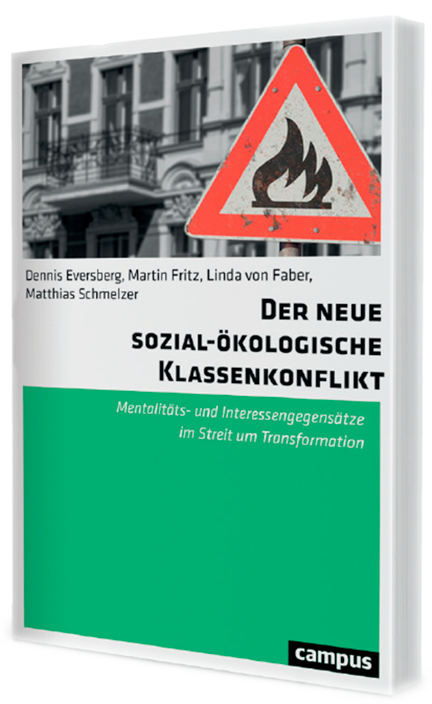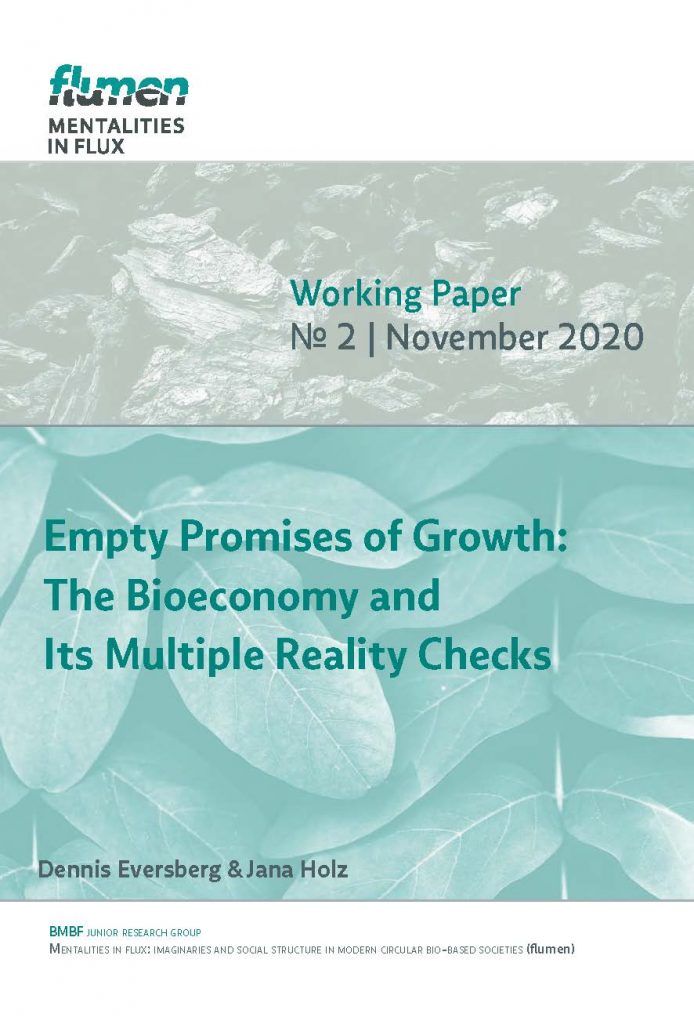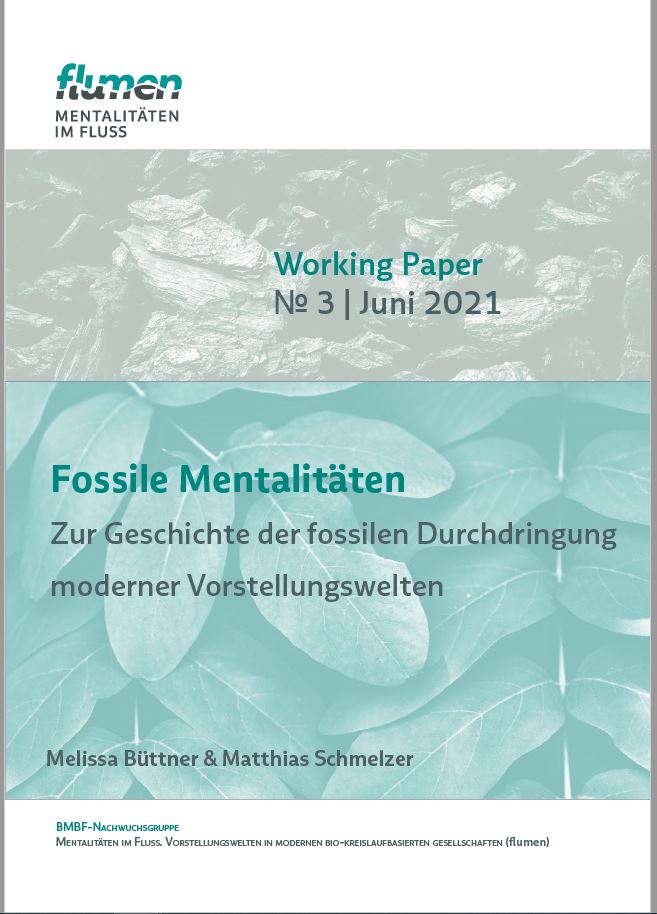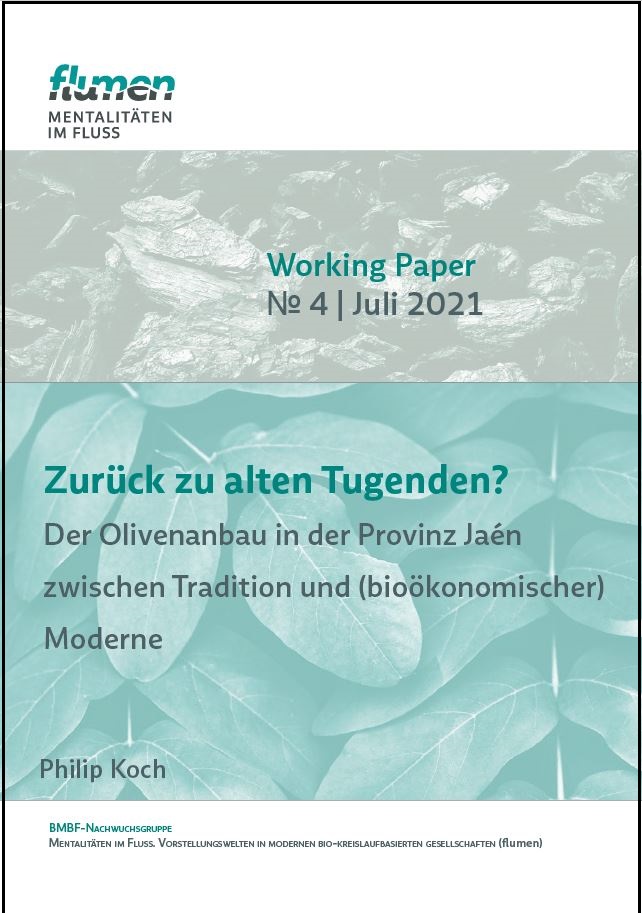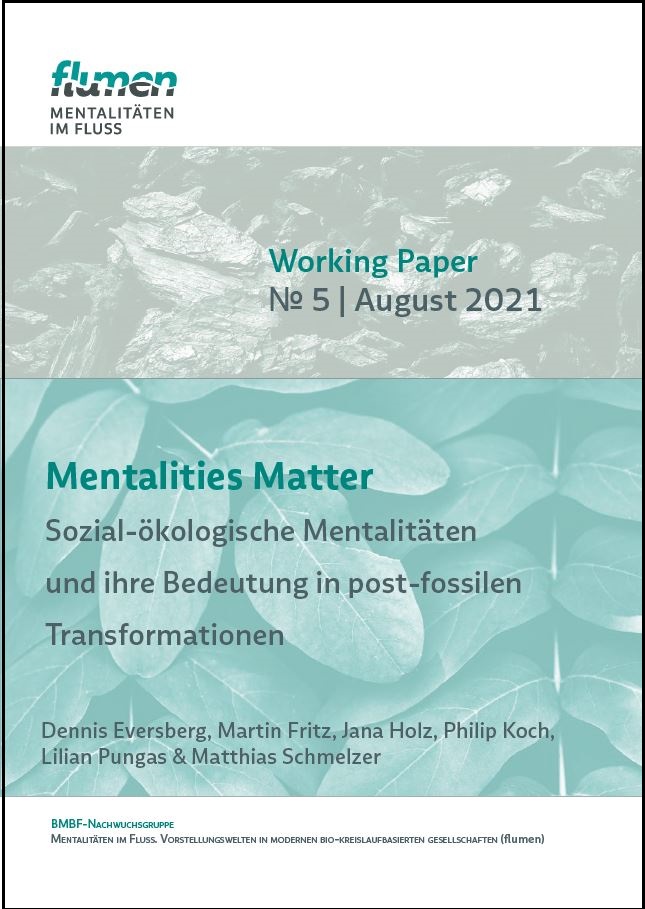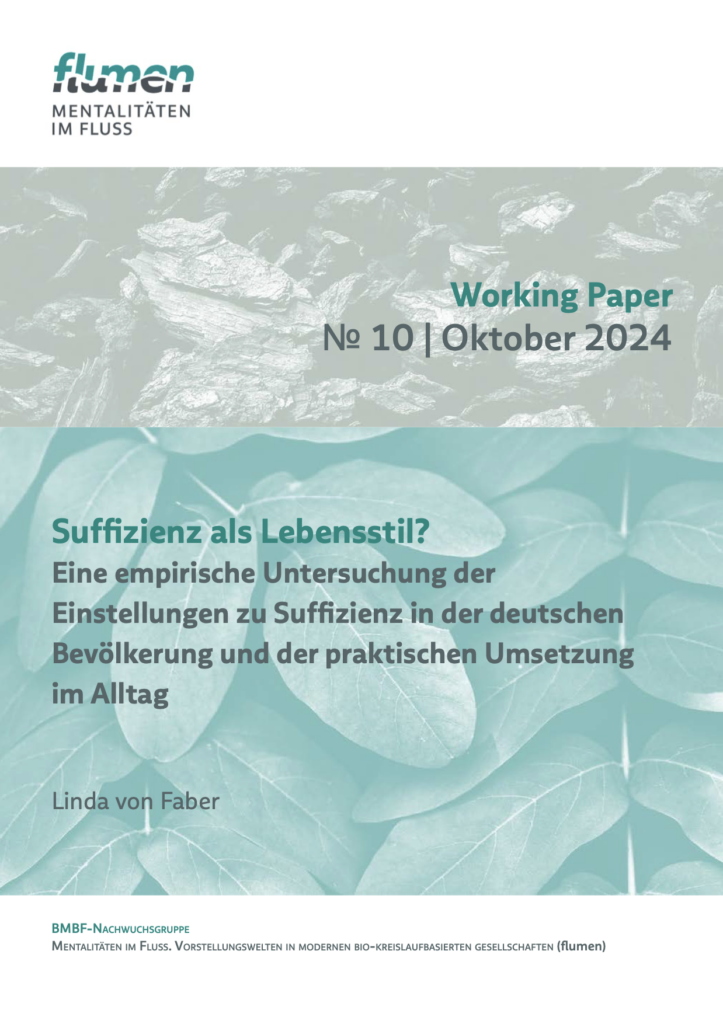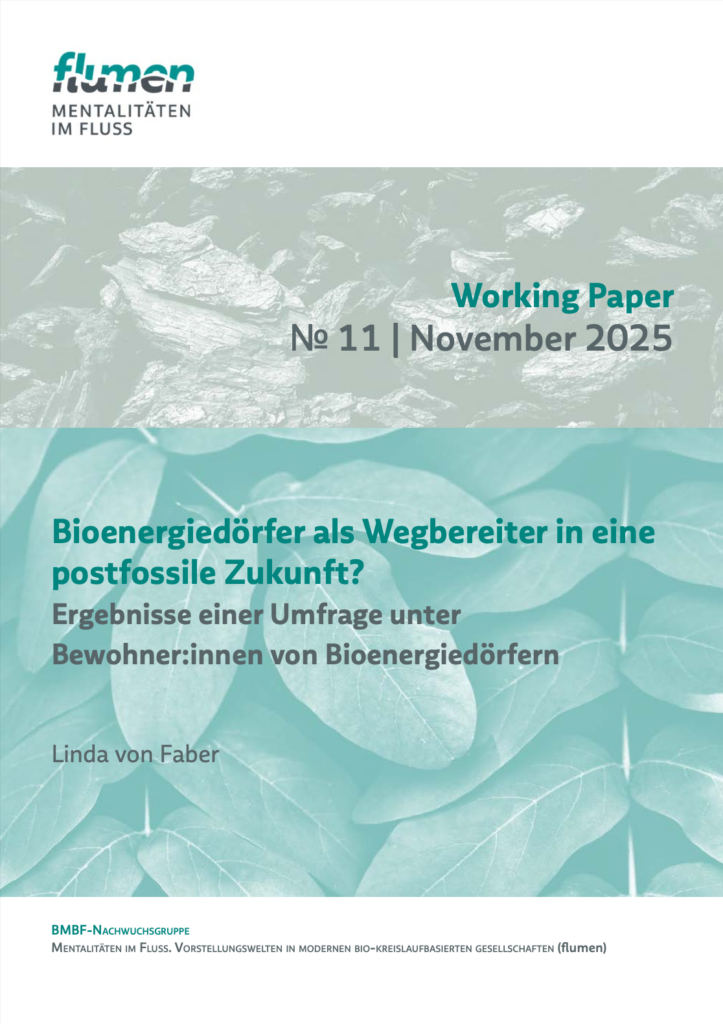- Books
- Research Report
- Working Paper
- Student Publications
- Peer-Reviewed Articles
- Additional Articles
- Book Chapters
- Reviews and reports
Books
2024:
Interviews and reviews
- Dennis Eversberg interviewed by Claus-Jürgen Göpfert in the Frankfurter Rundschau
https://www.fr.de/politik/luxus-muss-beschraenkt-werden-93177604.html - Reviewed by Claudia Detsch in the IPG Journal (Internationale Politik und Gesellschaft [International Politics and Society Magazine] / Friedrich-Ebert Foundation)
https://www.ipg-journal.de/aus-meinem-buecherschrank/artikel/haeuslebauer-sucht-wutbuergerin-7791/ - Book presented by Nina Apin in the taz
https://taz.de/Buch-ueber-Konflikte-in-der-Gesellschaft/!6033095/ - Reviewed by Dipl.-Päd. Dr. Jos Schnurer at socialnet
https://www.socialnet.de/rezensionen/32382.php - Buchtipp von Matthias Rabbe, in: Impuls – Magazin der Bewegung für soziale Gerechtigkeit (Katholische Arbeitnehmerbewegung), 3/2024. https://www.kab.de/fileadmin/user_upload/KAB-Impuls-III-2024.pdf
- Rezension von Herbert Klemisch, in: contraste – Zeitung für Selbsorganisation vom 02/12/2024
- Eversberg, Dennis (2024): Gesellschaftliche Kräfteverhältnisse in der sozial-ökologische Transformation: Dennis Eversberg, der ehemalige Leiter von flumen im Interview (https://www.ews-schoenau.de/energiewende-magazin/zur-sache/die-stimmung-der-gesellschaftlichen-mitte-hat-sich-verschoben-/)
- Review by Christoph Weischer, in: Soziopolis from 26/02/2025
https://www.soziopolis.de/von-klimawandel-und-klassenfrage.html - Review by Fabian Rasem, in: Ethics and Society from 27/05/2025:
https://ethik-und-gesellschaft.de/ojs/index.php/eug/article/view/3132
Research Reports

Eversberg, Dennis / Fritz, Martin / von Faber, Linda / Schmelzer, Matthias (2024): The new socio-ecological class conflict. Conflicting mentalities
and interests in the dispute over transformation. Research report of the Junior Research Group „Mentalities in flux: imaginaries and social structure in modern circular bio-based societies (flumen)“, Jena.
https://doi.org/10.22032/dbt.62699
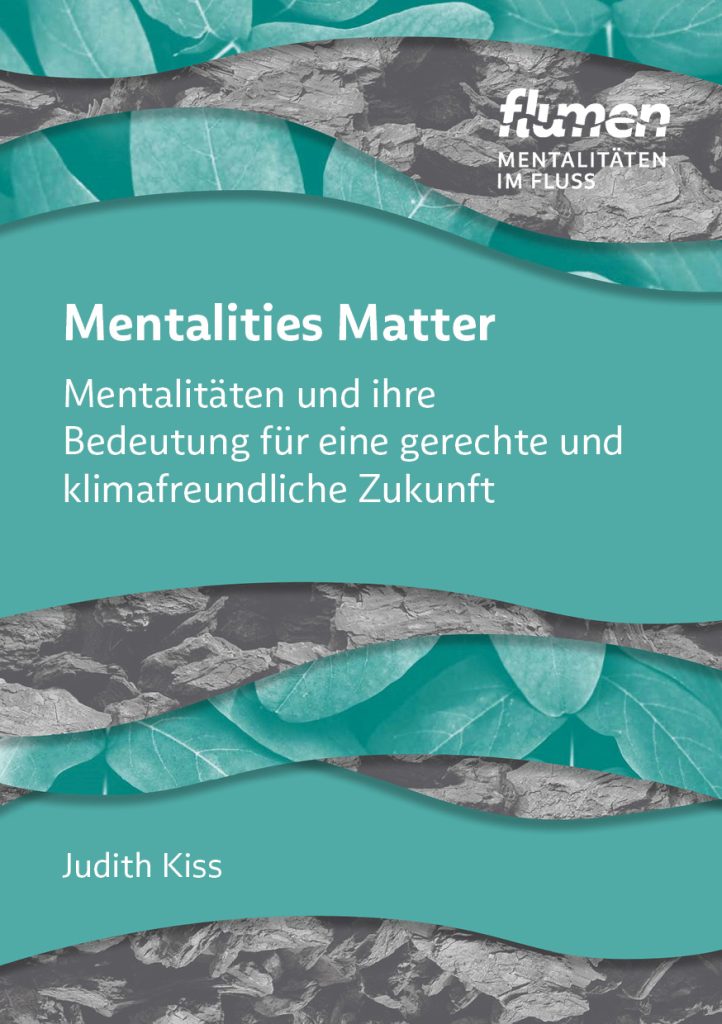
Kiss, Judith (2025): Mentalities Matter: Mentalitäten und ihre Bedeutung für eine gerechte und klimafreundliche Zukunft. Research report of the Junior Research Group „Mentalities in flux: imaginaries and social structure in modern circular bio-based societies (flumen)“, Jena. https://doi.org/10.22032/dbt.66115
Working Paper of the BMBF Junior Research Group flumen
Working Paper flumen No 1
Using the dataset of the survey “Environmental Consciousness in Germany 2018” by the Federal Ministry for the Environment, Nature Conservation and Nuclear Safety (BMU) and the Federal Environmental Agency (UBA), this paper develops a typology of eleven different patterns of socio-ecological attitudes or mentalities in the German population. This is done to investigate to what extent the transformations of economy and society towards a post-fossil model that are currently being discussed under the heading of ‘bioeconomy’ may become the subject of increasing tensions or conflicts within society. In a first step, a factor analysis is deployed to identify six different dimensions of socio-ecological attitudes. These are used as input for three different cluster analyses, comparison between which yields a distinction between eleven different types of attitudinal patterns or mentalities. Using indices for respondents’ endowment in cultural and economic capital, these attitudinal patterns are then related to each other in their respective ideal-typical locations in the social space according to Bourdieu, and their mutual relationships are examined. This results in the diagnosis of a roughly tripartite division of the population into (a) an eco-social camp, which comprises around a
third of the population and actively supports far-reaching ideas of a post-fossil transformation not only of the economy, but also of the prevailing mode of living, (b) a liberal-escalatory camp of around 40 percent, which clings to ideals of continuous growth and increasing prosperity and is so far not prepared to accept such transformations if they threaten to call these goals into question, and (c) an authoritarian-fossilist camp that seems to favour a return to outdated economic and social models of the 20th century, which will be impossible to achieve on a bio-based basis. The constellation of the (still) rather latent conflict between these three camps on the eve of the Fridays for Future protests is outlined. Finally, the question is raised which concepts of a bioeconomic transformation may find support from the various mentalities and camps, but also what increasing polarizations they may lead to.
Annex: Clusterlösungen_Clusteranalyse
Working Paper flumen No 2
In this paper, we want to make two arguments. Firstly, we observe that the current trend in official policy concepts and strategies of the bioeconomy is toward a moderation of the promises of economic growth that it has been associated with since the beginning of this millennium. We argue that this process of moderation is at least partly due to the effects of a series of ‘reality checks’ that the different existing strands of research on the bioeconomy have (willingly or unwillingly) subjected the promises to, forcing governments to move away from obviously unrealistic visions and adopt more humble ones. We identify four such reality checks, coming from research on (a) bioeconomy discourses and strategies, (b) actors and interests in the political economy of the bioeconomy, and (c) the economic and biophysical materialities that make up ‘the bioeconomy’. Secondly, we propose that a fourth, sociological reality check is currently being mounted, exposing the social implausibility and democratic illegitimacy of the bioeconomy’s promissory visions. Using survey data from Germany to develop a provisional analysis of the tensions and conflicts within the population that disagreements about the bioeconomy are embedded in, we suggest putting the bioeconomy in its proper political place as part of the larger societal challenge, rather than promise, of achieving a post-fossil transformation of modern societies.
Working Paper flumen No 3
With the concept of “carbon mentalities” and “carbon imaginaries” we introduce an analytical toolkit for historically informed and socially differentiated research on the interactions between pre-fossil, fossil and post-fossil energy regimes on the one hand and societal patters of perception, feelings and action on the other. What are carbon mentalities? How do they differ from pre-fossil mentalities? What can be concluded from the analysis of previous energy transformations – first and foremost the transformation towards the use of fossil resources in the context of industrialization – about the ways in which societal imaginaries change? Which mentalities have been displaced, which have persisted, and which have emerged anew? What struggles have been fought around fossil resources and mentalities? We explain what exactly we mean by mentalities and imaginaries based on arguments from the history of mentalities and sociological analyses of relational social structures and habitus. The extent to which mentalities are based on fossil resources, but conversely also enable the use of fossil resources, is discussed based on existing historical literature and through case studies. On the one hand, we analyze how mentalities of escalation and externalization were promoted or brought about by the use of fossil energy, and on the other hand, to what extent certain mentalities conditioned and contributed to the transition towards fossil energy sources. This reappraisal of debates on the societal transformation from pre-fossil, cyclical societies to fossil, extractive societies based on linear flows and the associated shift in mentalities thus complements previous sociological and historical research on energy transitions. In conclusion, we develop a set of key dimensions from these historical discussions that are central to research on the relationship between energy transformations and mentalities – including the current transformations towards a post-fossil bioeconomy.
Working Paper flumen No 4
The olive sector in Jaén in the south of Spain serves as an example of what happens when a bio-based economy that has existed for centuries reaches biophysical limits. The Andalusian bioeconomy strategy tries to reform the sector by modernizing it, i.e. investing in technological innovation and an increase in efficiency in mechanization. This paper first takes a look at current demographic data on the province of Jaén, before going into details on the historic development of the olive sector and embedding this information in a section on the current state of olive cultivation. The comparison between historic development and contemporary data yields several results: First, the bioeconomy strategy can be seen in a long tradition of attempts to overcome the region’s dependence on olive cultivation by means of industrialization and mechanization. Second, since the history of olive cultivation in the province is not a typical tale of land concentration and technological modernization, but rather of a strong peasantry consisting of thousands of smallholder farmers that extensively grew in size. This historic bioeconomy is different from the one currently being implemented. Those difference result in various areas of possible conflicts that demand further research.
Working Paper flumen No 5
It is widely agreed that a post-fossil transformation towards an economy based on renewable energies and bio-based material sources is inevitable and that this will bring fundamental changes for modern societies. However, these changes are so far mostly imagined in terms of technological innovations and reconfigurations of productive processes and infrastructures. What is receiving much less attention are questions pertaining to how post-fossil transformations will (have to) affect and reshape the modes of living, or patterns of everyday practices, as well as the mentalities, or habits of perception, evaluation and action, that are no less shaped by 200 years of fossilism.
This paper introduces our approach of a relational socio-ecological research on mentalities, which we propose as a necessary addition to existing research on post-fossil transformation processes that enables a systematic focus on these two dimensions.
It discusses the concept of mentalities as our theoretical starting point, sketching its origins in the tradition of German sociology, and provides it with a more solid theoretical foundation by drawing on Pierre Bourdieu’s theory of practice with its concept of habitus. To (re-)introduce an ecological dimension into the Bourdieuian conceptual framework, we propose a number of extensions to it, by engaging with different strands of debate in socio-ecological research, including those on societal nature relations, the material, institutional and mental infrastructures of societies founded on fossil-driven economic growth and the dynamics of externalization and inequality underlying the modes of living enabled by that growth. As a result, we suggest a “socio-ecological update” to Bourdieu’s practice theory, linking it up to those debates through the concept of „social relations with nature“, and the construction of a „space of social relations with nature“ in analogy and addition to the space of social (class) relations.
Working Paper flumen No 6
This working paper introduces a method of measuring the bioeconomy for the purpose of assessing the social structure and working conditions of persons working in bioeconomic jobs. Previous measurements only allow aggregate level estimations of financial and economic contributions of the bioeconomy. The job classification suggested here is suitable for analysing individual level survey data. By combing information from the sector of economic activity with data on occupation three types of jobs can be distinguished: jobs in the core bioeconomy, jobs in the wider bioeconomy and jobs that are outside the bioeconomy. The classification is applied to a) an analysis of the social structure and working conditions in the Finnish bioeconomy and b) a study of the composition and changes of employment in the German bioeconomy in comparison to the approach of the ‘Pilot Report on Monitoring the German Bioeconomy’ (Bringezu, Banse, Ahmann et al. 2020). Results show that in the bioeconomy atypical forms of employment occur more often while overall job numbers are declining.
Working Paper flumen No 7
This paper draws on the concept of socio-ecological mentalities (Eversberg 2020) and uses the data set of the survey “Environmental Consciousness in Germany 2018” to develop a typology of mentalities towards every day mobility and sustainability. Applying factor and clusteranalysis, eight different mentalities were extracted sho- wing that automobility is in the very center of a conflict revolving around a possible transformation of the mobility sector. To illustrate these finding and to highlight the relationships between the clusters, these mentalities were grouped in two camps: One the one hand there are four persistent car-centred attitudes which are (1) the anti-eco- logical car-enthusiasm, (2) the expansionist multioptionalism, (3) the conservative automobilism and a (4) pseudo-affirmative growth affinity. On the other hand, there is a camp that covers car-sceptical and progressive attitudes consisting of (5) the pragmatic preference for public transport, (6) the discontented forced automobility, the (7) mobility minimalism and (8) the progressive bicycle enthusiasm. Both camps cover each approximately half of the sample. This constellation of very different, even strongly opposing mentalities indicates that every day mobility and its possible future transformation is a highly polarized field of conflict with a strong discontent about regulations of the automobile system. The last section of the paper then applies the concept of fossil mentalities (Büttner/Schmelzer 2021) to discuss in how far these ty- pes of attitudes are based on ideas and notions of mobility that only evolved through the mass usage of fossil fuels. Using the relational approach of socio-ecological men- talities thereby proved to be a useful framework to highlight opportunities as well as hurdles towards a socio-ecological transformation.
Working Paper flumen No 8
In this working paper, we present the results of the “BioMentalitäten” survey, which is representative for Germany and was conducted in 2021/22 by the BMBF junior research group “Mentalities in Flux (flumen)” on attitudes towards socio-ecological transformation and bioeconomy. Based on the data obtained, different attitudes, basic orientations and lines of conflict can be identified. While far-reaching changes for better climate and environmental protection are largely regarded as legitimate (which may be related to widespread concern for nature), conflict potential lies primarily in the social aspects of a comprehensive transformation: fears of social decline, media skepticism and demands for a fair distribution of the costs of change are central aspects here that must be taken into account in the political design of the transformation. Statements on concrete measures of the socio-ecological transformation and bioeconomy that affect everyday life are often evaluated in a more differentiated manner than more general statements, whose high approval ratings can easily lead to an overestimation of environmental awareness. This result can be summarized in the formula “I think protecting nature and the environment is good, but please don’t change my way of life.” However, there are definitely respondents whose attitudes and practices do not contradict each other. For the bioeconomy as a necessary – but not sufficient – part of the socio-ecological transformation, a broad spectrum of attitudes and non-attitudes emerges, in which possible conflicts due to opposing opinions also emerge, but overall show a cautiously positive picture. Individual conflicts are to be expected mainly where the costs and consequences for the everyday life of the respondents are concerned. Overall, our results show that a socio-ecological transformation, which includes forms of biobased economic activity but must also go significantly beyond this, will only be supported by a majority of the population if socially just solutions are found and implemented for problematic impacts on people’s everyday lives.
Working Paper flumen No 9
Energy is becoming an increasingly important topic in the international debates within the humanities and social sciences. This working paper aims to contribute to the systematization of this discussion by comparing two theories that seek to address the relationship between societal energy systems and power structures. The focus here lies on the conception of energy, its integration into the theory of power and the reflections on the political realization of a decarbonization of the energy system based on this foundation. In a theory-immanent comparison of the Marxist theory of fossil capital by the human ecologist Andreas Malm with the Foucauldian theory of energopower by the anthropologist Dominic Boyer, it becomes evident that both theorists advocate a socio-material conception of energy which can be more consistently represented with Malm’s historical-materialist method than with Boyer’s genealogical one. Regarding the theoretical determination of the relationship of energy and power, it becomes apparent that both authors theorize different aspects of this nexus and that their approaches can therefore be reformulated into a more comprehensive socio-theoretical perspective on a historical materialist basis. In comparing the contributions to the debate on the political
implementation of a postfossil transformation, it becomes clear that both approaches are insufficient as strategic guidelines, but that their contrast is insightful for further considerations. Overall, the comparison of the two theories shows that developing a comprehensive theory of the nexus of energy and power is a promising task for social theory.
Working Paper flumen No 10
Technological solutions such as increasing efficiency and recycling have not yet made a satisfactory contribution to reducing greenhouse gas emissions and the consumption of raw materials, partly due to rebound effects. What is therefore needed is a strategy of sufficiency, i.e. doing without or significantly reducing certain practices, goods and economic activities. Sociological research is increasingly focusing on sufficiency and looking into it in different contexts: As a sustainability strategy, an element of human happiness and in connection with systemic contexts such as post-growth societies. In addition, there is research that deals with sufficiency in political and individual everyday practice; however, people‘s attitudes towards sufficiency and the implementation of sufficiency in everyday life have not yet been researched in detail. This study therefore examines the questions of 1) the extent to which the German population is willing to implement sufficiency, and 2) the extent to which certain life circumstances and attitudes influence the willingness to act in a sufficiency-oriented manner. The data basis for this project is the “BioMentalities” survey by flumen, which is representative for Germany and for which 4,000 people were interviewed by telephone and online in 2021/2022. A typology of six different types of sufficiency was created, whose systematic differences help to clarify the research questions and draw a more differentiated picture of the often-diagnosed divergence of ‚sustainable‘ attitudes and practices. There are quite large differences between the individual sufficiency types, both in terms of attitudes and practices, with non-sufficient practices tending to be associated with high income, anti-environmental attitudes and a sense of precarity. Overall, sufficiency behaviour is not influenced by a single factor, but by a complex interplay of factors, including attitudes as well as social and material conditions. It therefore seems appropriate to promote sufficiency politically in order to remove structural barriers.
Working Paper flumen No 11
Bioenergy villages are examples of a locally anchored, democratically legitimised and “bottom-up” implementation of the energy transition. Based on a postal survey of residents of German bioenergy villages (n = 523) conducted in spring 2022, this study examines how these communities differ from other villages and the general population, what attitudes exist towards the bioenergy project, how participation and economic involvement affect them, and what role bioenergy villages can play in the context of socio-ecological transformation. The results reveal a characteristic profile: bioenergy villages tend to be socially privileged, resource-rich communities with high social stability, economic security and localties. A pragmatic understanding of politics and a balanced, moderate stance on many socio-political issues prevail, but there are also reservations about technological and culturally progressive change; change is supported as long as it can be integrated into the existing living environment. Residents are largely positive about their communities‘ bioenergy projects and report mostly positive effects. Opportunities for participation usually exist, but are only partially taken up; financial participation is also low. Perception and acceptance are closely linked to participation and transparency, which are key characteristics and probably success factors of bioenergy villages and whose significance extends beyond local energy supply: they strengthen the self confidence of rural areas and show that democratic participation in transformation processes should be given greater consideration than previous typologies suggest.
Student Publications
von Faber, Linda (2024): Reparaturen als ein Baustein der sozialökologischen Transformation: Vorschlag für die Implementierung eines Reparaturbonus. Studentische Publikation der BMBF-Nachwuchsgruppe „Mentalitäten im Fluss (flumen)“, Jena. pdf
Peer-Reviewed Articles
2025
Fritz, Martin (2025): What bioeconomy do we want? Socio-ecological mentalities and perceptions of the bioeconomy among the German population. In: Ökologisches Wirtschaften. Bd. 40 Nr. 1. https://www.oekologisches-wirtschaften.de/index.php/oew/article/view/2091
Holz, Jana Rebecca / Saave, Anna (2025): Extractivist valorization in industrial forestry in the Global North – Elements of an analytical framework and illustration for the cases of Finland and Alberta, Canada. In: Ecological Economics 228, 108444. https://doi.org/10.1016/j.ecolecon.2024.108444
2024.
von Faber, Linda / Fritz, Martin / Eversberg, Dennis (2024): Mentalities in the energy and heat transition: A comparative study of German bioenergy villages. In: SuN, online, 157-179. https://www.uni-muenster.de/Ejournals/index.php/sun/article/view/6166/6322
Book tip by Matthias Rabbe, in: Impuls – Magazine of the Movement for Social Justice (Catholic Workers’ Movement), 3/2024. https://www.kab.de/fileadmin/user_upload/KAB-Impuls-III-2024.pdf
Review by Herbert Klemisch, in: contraste – Newspaper for self-organization from 2.12.2024
Eversberg, Dennis (2024): Social power relations in the socio-ecological transformation: interview with Dennis Eversberg, former head of flumen (https://www.ews-schoenau.de/energiewende-magazin/zur-sache/die-stimmung-der-gesellschaftlichen-mitte-hat-sich-verschoben-/)
Emilsson, Kajsa / Hildingsson, Roger / Fritz, Martin (2024): The active, the sympathetic, and the reluctant: political action and eco-social attitudes among Swedish residents, In: European Political Science Review. https://doi.org/10.1017/S1755773924000213
Fritz, Martin / Eversberg, Dennis (2024): Mentalities, classes and the four lines of conflict in the social-ecological transformation, In: European Political Science, 23, 39–55. https://doi.org/10.1057/s41304-023-00457-2
2023.
Fritz, Martin / Eversberg, Dennis (2023): Mentalities, classes and the four lines of conflict in the social-ecological transformation, In: European Political Science. https://doi.org/10.1057/s41304-023-00457-2
Fritz, Martin / Lee, Jayeon (2023): Introduction to the special issue: Tackling inequality and providing sustainable welfare through eco-social policies. In: European Journal of Social Security, 0(0). https://doi.org/10.1177/13882627231213796
Fritz, Martin / Eversberg, Dennis (2023): Support for eco-social policy from a class perspective: Responsibilities, redistribution, regulation and rights. In: European Journal of Social Security, 0(0). https://doi.org/10.1177/13882627231208929
Halla, Tuulikki / Holz, Jana / Karhunkorva, Reetta / Laine, Jaana (2023): The concept of the human-forest relationship (HFR) – Definition and potentials for forest policy research. In: Forest Policy and Economics. https://doi.org/10.1016/j.forpol.2023.102995
Friedrich, Jonathan / Holz, Jana / Koch, Philip / Pungas, Lilian / Eversberg, Dennis / Zscheischler, Jana (2023): Rural bioeconomies in Europe: Socio-ecological conflicts, marginalized people and practices. In: GAIA, https://doi.org/10.14512/gaia.32.2.3
Pungas, Lilian (2023): Dachas and food democracy—What makes a (good) food citizen? In: Frontiers in Sustainable Food Systems, https://doi.org/10.3389/fsufs.2023.1052298
Eversberg, Dennis / Koch, Philip / Lehmann, Rosa / Saltelli, Andrea / Ramcilovic-Suominen, Sabaheta / Kovacic, Zora (2023): The more things change, the more they stay the same: promises of bioeconomy and the economy of promises. In: Sustainability Science, https://doi.org/10.1007/s11625-023-01321-4
Holz, Jana (2023): Threatened sustainability: extractivist tendencies in the forest-based bioeconomy in Finland. In: Sustainability Science, https://doi.org/10.1007/s11625-023-01300-9
Pungas, Lilian (2023): Invisible (bio)economies: a framework to assess the ‘blind spots’ of dominant bioeconomy models. In: Sustainability Science, https://doi.org/10.1007/s11625-023-01292-6
2022.
Eversberg, Dennis / Holz, Jena / Pungas, Lilian (2022): The bioeconomy and its untenable growth promises: reality checks from research.“ In: Sustainability Science, https://doi.org/10.1007/s11625-022-01237-5
Khan, Jamil / Emilsson, Kajsa / Fritz, Martin / Koch, Max / Hildingsson, Roger / Johansson, Håkan (2022): Ecological ceiling and social floor: public support for eco-social policies in Sweden. In: Sustainanility Science, https://doi.org/10.1007/s11625-022-01221-z
Schmelzer, Matthias (2022): From Luddites to limits? Towards a systematization of growth critiques in historical perspective. In: Globalizations, https://doi.org/10.1080/14747731.2022.2106044
Eversberg, Dennis / Koch, Philip / Holz, Jana / Pungas, Lilian / Stein, Anne
(2022): Social relationships with nature: elements of a framework for socio-ecological
structure analysis. In: Innovation: The European Journal of Social Science Research, https://doi.org/10.1080/13511610.2022.2095989
Lilian Pungas (2022): Who stewards whom? A paradox spectrum of human–nature relationships of Estonian dacha gardeners. In: Innovation: The European Journal of Social Science Research, http://doi.org/10.1080/13511610.2022.2095990
Venghaus, Sandra / Eversberg, Dennis / Fritz, Martin / Pungas, Lilian (2022): Editorial to the Special Issue: Promises of growth and sustainability in the bioeconomy. In: Sustainable Production and Consumption, 31, 839-841. https://doi.org/10.1016/j.spc.2022.04.009
Eversberg, Dennis / Fritz, Martin (2022): Bioeconomy as a societal transformation: Mentalities, conflicts and social practices. In: Sustainable Production and Consumption, 30, 973-987. https://doi.org/10.1016/j.spc.2022.01.021
2021.
Eversberg, Dennis (2021): Socio-Ecological Mentalities and the Trilemmas of Covid and Climate. In: The European Sociologist, Issue 46: Pandemic (Im)Possibilities vol. 2
Fritz, Martin / Bohnenberger, Katharina / Mundt, Ingmar / Riousset, Pauline (2021): Die Vertretung ökologischer Interessen als sozialpolitische Interessen: Konflikt- oder Kooperationspotential in einer Transformation zur Nachhaltigkeit? In: Zeitschrift für Sozialreform 67/2.
2020.
Eversberg, Dennis (2020): The social specificity of societal nature relations in a flexible capitalist society. In: Environmental Values, DOI:10.3197/096327120X15916910310581.
2019.
Eversberg, Dennis (2019): Who can challenge the imperial mode of living? The terrain of struggles for social-ecological transformation in the German population. In: Innovation: The European Journal of Social Science Research 33/2, 1-24.
Eversberg, Dennis (2019): The social specificity of societal nature relations in a flexible capitalist society. In: Environmental Values, online 27.06.2020, doi: 10.3197/096327120X15916910310581
Pungas, Lilian (2019): Food Self-Provisioning as an Answer to the Metabolic Rift: The Case of ‘Dacha Resilience’ in Estonia. In: Journal of Rural Studies, 68, 75-86.
Additional Articles
2024.
Drue, Sebastian / Kiss, Judith (2024): Gelingt die sozial-ökologische Transformation angesichts gesellschaftlicher Mentalitäts- und Interessenunterschiede? In: Stiftung Mitarbeit (Hrsg.): Transformation demokratisch gestalten – Beteiligung und Mitwirkung auf dem Weg zu mehr Klimaschutz und Nachhaltigkeit. mitarbeiten.skript, 17, 11-16. Bonn: Verlag Stiftung Mitarbeit.
Eversberg, Dennis/Fritz, Martin/von Faber, Linda/Schmelzer, Matthias: Der neue sozial-ökologische Klassenkonflikt. Mentalitäts- und Interessengegensätze im Streit um Transformation. Scientific report of the Junior Research Group „Mentalities in flux (flumen)“, Jena. Friedrich-Schiller-University, Institute for Sociology, Jena. https://doi.org/10.22032/dbt.59592
Eversberg, Dennis / Fritz, Martin: Erwerbsstrukturen, Beschäftigungsbedingungen und Mentalitäten in der deutschen Bioökonomie. In: Sozialpolitik in Diskussion, 25, 118–135.
Kiss, Judith / Fritz, Martin: Klassenkonflikt um die Transformation. Wenn Meinungen auseinandergehen. Transforming Economies – Blog der Bertelsmann Stiftung. https://transforming-economies.de/klassenkonflikt-um-die-transformation-wenn-meinungen-auseinandergehen/ [last access 19 June 2024].
Kiss, Judith: Transformation im Klassenkonflikt. Rotunde – Blog der Evangelischen Akademie Tutzing. https://web.ev-akademie-tutzing.de/rotunde/index.php/transformation-im-klassenkonflikt/ [last access 16 April 2024].
Holz, Jana / Saave, Anna (2024): Forst(wirtschaft) und Degrowth. Blog Postwachstum. Retrieved January 16, 2024 (https://www.postwachstum.de/forstwirtschaft-und-degrowth-20240115).
2023.
Pungas, Lilian (2023): Dachas rooting at the European Periphery. Essay in: Arts of the Working Class. https://artsoftheworkingclass.org/text/dachas-rooting-at-the-european-periphery. [last access 6 March 2024]
Eversberg, Dennis (2023): Anpassung, Verteilung, Externalisierung: Drei Dimensionen des sozial-ökologischen Transformationskonflikts. In: Prokla 53, Nr. 210, 137–159, DOI: 10.32387/prokla.v53i210.2038.
2022.
Koch, Philip (2022): Ecuador: Bioökonomie und Biodiversität. In: FDCL e.V., „BioInequalities“ University of Jena (Ed.): AGRO IST POP, AGRO IST BIO, AGRO IST ALLES! BRASILIEN: ZUKUNFTSLAND DER BIOÖKONOMIE? FDCL-Verlag. ISBN: 978-3-949237-02-7.
2021.
Eversberg, Dennis (2021): Beliefs and knowledges – Socio-Ecological Mentalities and the Trilemmas of Covid and Climate, in: The European Sociologist, Issue 46: Pandemic (Im)Possibilities vol. 2
2019.
Holz, Jana / Godding, Sarah / Lehmann, Rosa / Wagner, Louise (2019): Postfossile Wirtschaft – Postfossile Gesellschaft?!. In: Blog Postwachstum. Retrieved November 18, 2019 (https://www.postwachstum.de/postfossile-wirtschaft-postfossile-gesellschaft-20191118).
Book Chapters
2023.
Eversberg, Dennis / Holz, Jana / Schmelzer, Matthias (2023): Bioeconomy: a solution to the challenges of a post-fossil future? In: Obeng-Odoom, Franklin (Ed.), Handbook on Alternative Global Development, 334-351. Cheltenham, UK: Edward Elgar Publishing. https://doi.org/10.4337/9781839109959.
2022.
Kämpfe um die Lebensweise. Praktische Dimensionen des sozial-ökologischen Transformationskonflikts. In: Julia Zilles/ Emily Drewing/ Julia Janik (Eds.), Umkämpfte Zukunft, Bielefeld: transcript Verlag, pp. 139-166. https://doi.org/10.14361/9783839463000-008
Pungas, Lilian / Plüschke-Altof, Bianka / Müüripeal, Anni / Sooväli-Sepping, Helen (2022): Same, Same but Different? The ‘Right’ Kind of Gardening and the Negotiation of Neoliberal Urban Governance in the Post-socialist City. In: Plüschke-Altof, Bianka / Sooväli-Sepping, Helen (Eds.): Whose Green City? . Sustainable Development Goals Series. Springer, Cham. https://doi.org/10.1007/978-3-031-04636-0_7
2021.
Fritz, Martin (2021): Einstellungen zu nachhaltiger Wohlfahrt und einer sozialökologischen Politik: Aktuelle Ergebnisse aus der Umfrageforschung. In: Dorothee Rodenhäuser, Hannes Vetter, Benjamin Held, Hans Diefenbacher (Eds.), Soziale Sicherungssysteme im Umbruch. Beiträge zur sozial-ökologischen Transformation, Die Wirtschaft der Gesellschaft Bd. 7. Marburg: Metropolis.
Pungas, Lilian (2021): Caring dachas – Food self-provisioning in Eastern Europe through the lens of care More
Reviews and (Scientific) Reports
2024.
Eversberg, Dennis / Fritz, Martin / von Faber, Linda / Schmelzer, Matthias (2024): The new socio-ecological class conflict. Conflicting mentalities and interests in the dispute over transformation. Research report of the Junior Research Group „Mentalities in flux: imaginaries and social structure in modern circular bio-based societies (flumen)“. Friedrich-Schiller-University, Institute for Sociology, Jena. pdf-version
Ronja Mikoleit / Jana Holz / Dr. Anne Saave / Ronja Schröder (2024): Soziologische Waldforschung im Aufbruch, Tagungsbericht zum ersten Soziologischen Waldsymposium am 01. Dezember 2023 an der Friedrich-Schiller-Universität Jena. Blog der SuN (Soziologie und Nachhaltigkeit, Beiträge zur sozial-ökologischen Transformationsforschung). https://sun-blog.org/tagungsbericht-soziologische-waldforschung-im-aufbruch-2023/ [last access 6 March 2024]
2023.
Holz, Jana (2023): Discussions of Possible, Probable, and Preferable Futures of Forests and Forestry in (Central) Finland. Report on the transfer activities in Finland in May 2023. Transfer Report, September 2023. https://www.flumen.uni-jena.de/wp-content/uploads/2023/10/Transfer-report-Finland.pdf
Pungas, Lilian / Kiss, Judith (2023): Dachas for Future – the importance of the allotment gardeners in Sillamäe for a fossil-free future Report on two transfer activities in Eastern Estonia. Transfer Report, February 2023. https://www.flumen.uni-jena.de/wp-content/uploads/2023/02/Bericht-Sillamaee_english_final.pdf
2020.
Eversberg, Dennis: Die Neuverhandlung unserer Beziehungen mit Natur, wissenschaftsjahr.de, 2.10.2020, URL: https://www.wissenschaftsjahr.de/2020-21/aktuelles-aus-der-biooekonomie/koepfe-des-wandels/die-neuverhandlung-unserer-beziehungen-mit-natur.
Koch, Philip / Fritz, Martin (2020): Hoffnungsträger Bioökonomie? Bericht vom Workshop “It’s the Bioeconomy, stupid! The future of growth and the promise of the bioeconomy.” Blog Postwachstum, 27.11.2020, URL: https://www.postwachstum.de/hoffnungstraeger-biooekonomie-20201127


